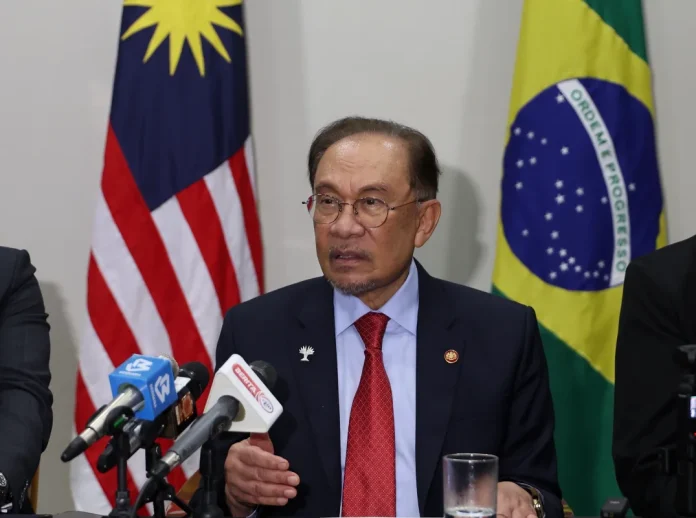Move for full membership part of wider push to diversify alliances, strengthen Global South ties and assert independent economic voice: Analysts
KUALA LUMPUR: Malaysia’s push for full BRICS membership is being read as a bold geopolitical statement – one that signals its intent to reshape its global standing, amplify its voice in international decision-making and chart a more independent economic future, analysts said.
The move, they added, reflects Kuala Lumpur’s growing confidence on the world stage as it seeks to strengthen alliances beyond the traditional Western orbit while preserving its long-held policy of neutrality.
Universiti Teknologi Mara Faculty of Administrative Science and Policy Studies senior lecturer Shahidah Abdul Razak said Malaysia’s goal is to position itself as an “interlocutor of all” – engaging both the United States and BRICS nations to advance national interests without siding exclusively with any major power.
“Malaysia’s full BRICS membership would enhance its diplomatic influence, particularly among Global South nations.
“It provides a louder voice in multilateral decision-making, access to alternative economic platforms and an opportunity to champion equitable growth while contributing to a rebalanced global economic architecture.”
She said the move is consistent with Malaysia’s long-standing “neutral but active” foreign policy.
“Historically, Malaysia’s diplomacy has been rooted in neutrality and maintaining peaceful relations with all countries.
“BRICS is an expansion of our strategic and economic horizons, not a departure from our non-aligned stance.”
However, Shahidah warned that Malaysia could face diplomatic pushback from Washington, given United States President Donald Trump’s outspoken criticism of the bloc.
“Malaysia might face subtle pressure, especially since some US trade agreements include clauses requiring consultation on new deals affecting US interests.
“Officials, however, have reaffirmed their commitment to BRICS cooperation while maintaining strong US ties.”
Universiti Kuala Lumpur Business School economist Associate Professor Dr Aimi Zulhazmi Abdul Rashid said full BRICS membership could open the door to significant economic gains.
“Becoming a full member will propel Malaysia to a different position globally.
“BRICS is rapidly emerging as an influential trade bloc, offering access to new markets, technological collaboration and protection against global trade volatility – particularly under policies like those enacted by Trump.”
Aimi said the founding BRICS members – China, India, Brazil, Russia and South Africa – offer vast market potential and abundant natural resources.
“Membership allows Malaysia to diversify away from traditional Western markets, expand trade coalitions and explore broader market access.
“Through Brazil and South Africa, Malaysia can also establish export bases for South America and Africa, enabling long-term economic growth.”
He added that Malaysia’s role in global supply chains, particularly in semiconductors, would enable it to leverage BRICS participation without undermining Western trade partnerships.
“Even amid political tensions, trading networks remain resilient. Malaysia’s diversification could further attract foreign investment,” Aimi said.
From a trade and strategic perspective, economist Professor Geoffrey Williams cautioned that Malaysia must also navigate possible legal constraints under existing US agreements.
“Malaysia has a multipolar trade policy, so BRICS membership is a natural step in building diverse trade relationships.
“It will only affect US relations if it breaches the National Security clause of the latest reciprocal trade agreement.”
Williams pointed to the recent reciprocal trade deal between the US and Malaysia – specifically Section 5: Economic and National Security, Article 5.1 which obliges Malaysia to adopt measures aligned with US restrictions on third countries.
“This clause is aimed at stopping transhipment of Chinese goods to undercut market prices.
“It would also bind Malaysia to impose similar sanctions against China as those imposed by the US. It’s potentially very serious and reduces Malaysia’s autonomy in trade and investment.”
Ultimately, Shahidah said, Malaysia’s move towards BRICS reflects a broader strategic vision to strengthen its influence in global governance and reinforce its role within the Global South.
“The rationale is to diversify markets, attract foreign investment and secure a stronger voice in global economic debates,” she added.








